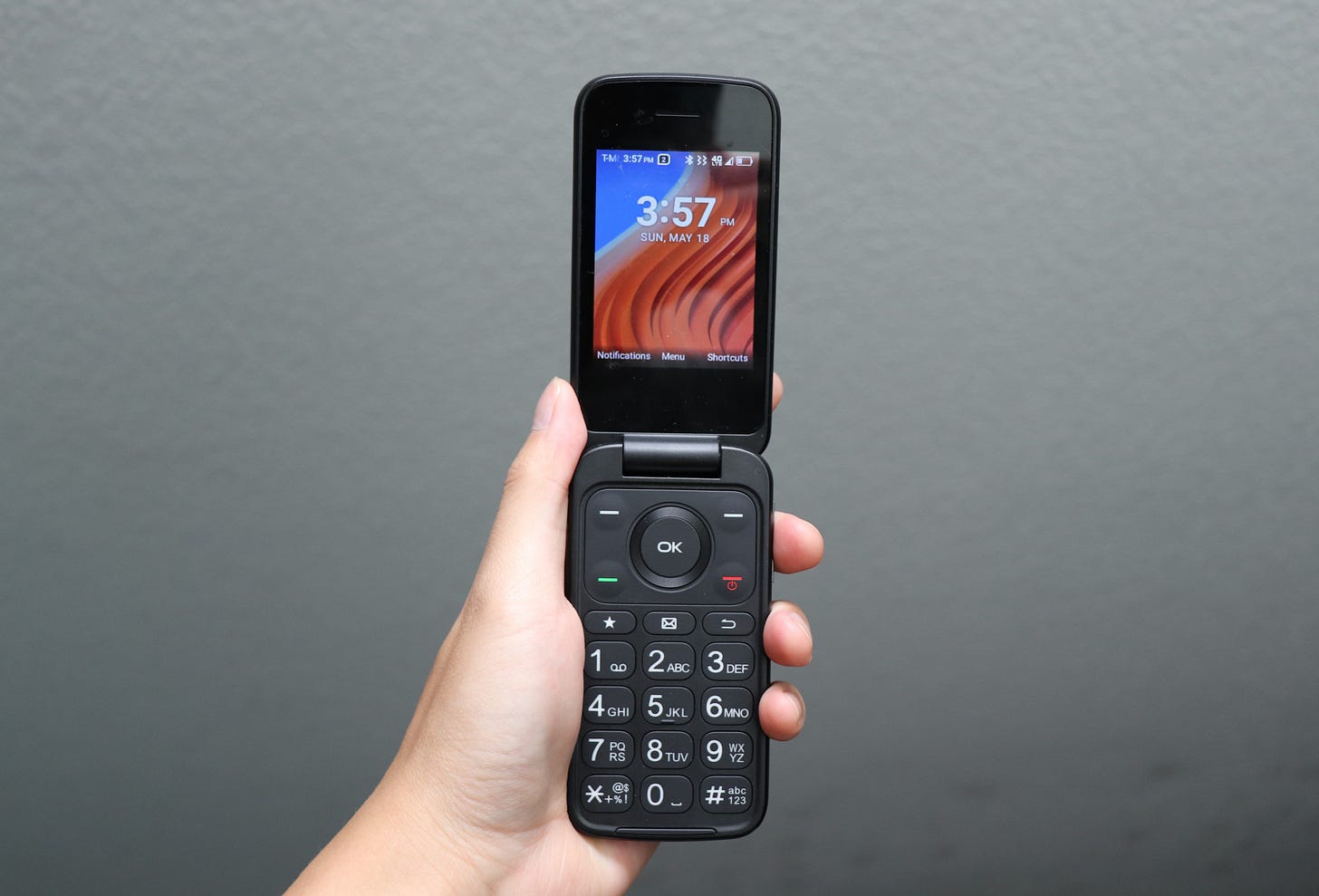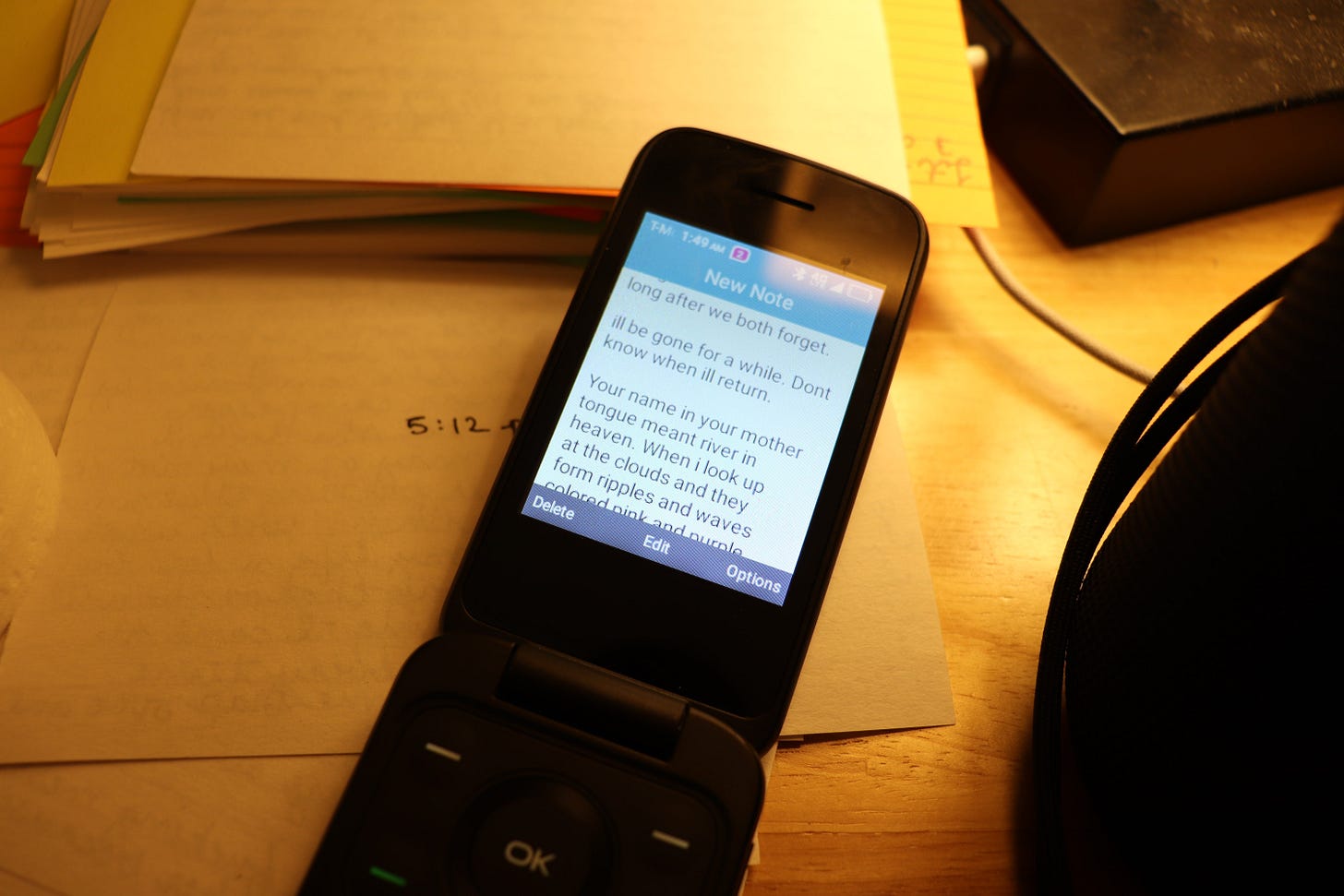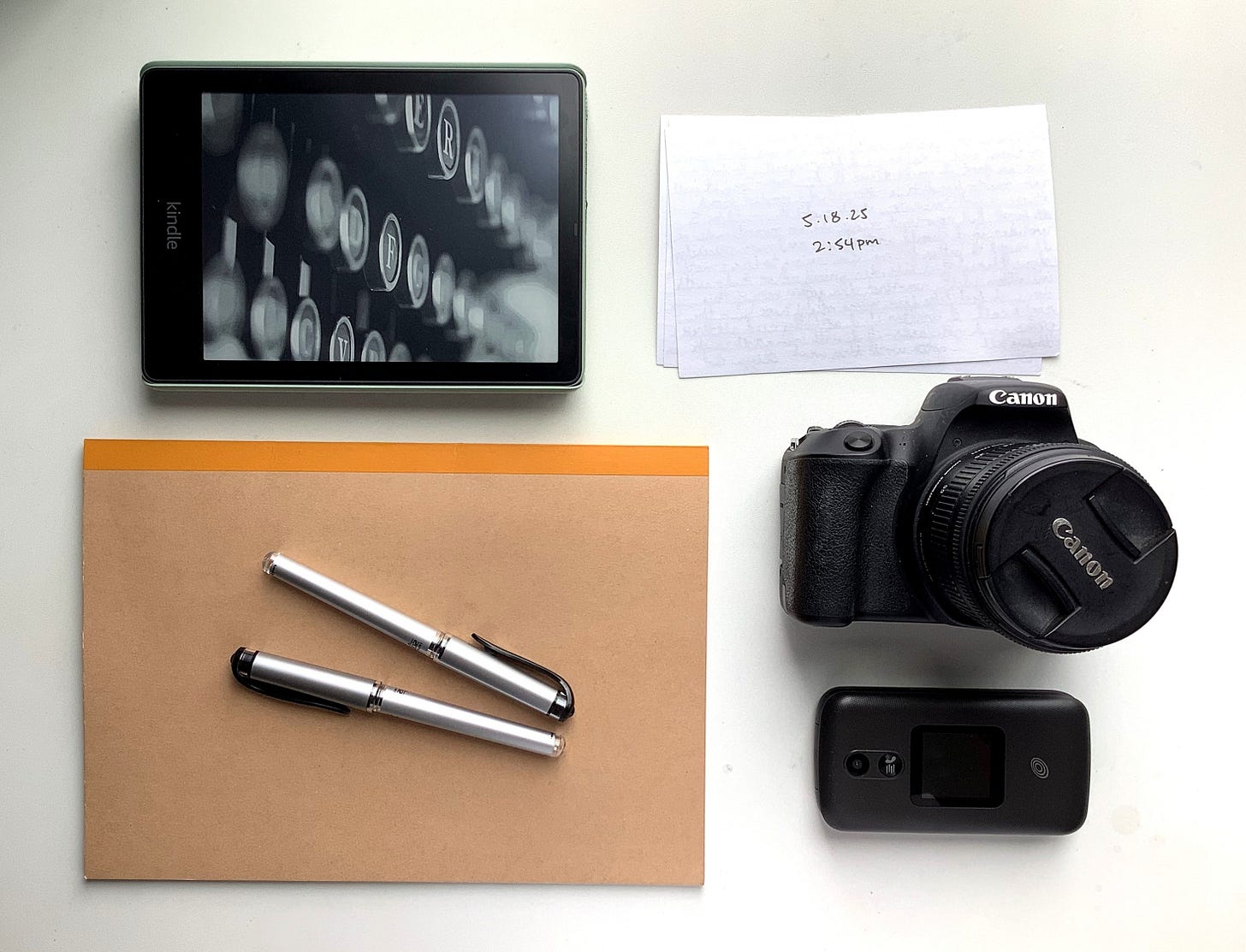I hate my smartphone and got rid of it
reflections from 30 days of freedom
i. phone addiction
About a month ago, I got rid of my iPhone and ordered a $40 flip phone off Amazon. I'd been considering the switch for over a year, and finally took the plunge.
Truth is, I hated my smartphone. I hated the endless videos, the wasted hours, the pervasive brain fog. I hated how anxious and insecure it made me. I hated feeling spineless and undisciplined, unable to control myself, unable to stop scrolling.
If you've felt this way too, it's not your fault - we're fighting a war for our own attention, with the odds stacked impossibly against us.
Social media corporations employ teams of doctorate-level psychologists and engineers whose entire careers are dedicated to keep you scrolling. They’ve developed Vegas-inspired content-delivery systems that spike your dopamine levels at just the right frequency to form compulsive habits and cause physical dependence. Like a gambling addiction.
It's not that you're lazy or undisciplined. These insidious practices target your neurobiology - no amount of willpower can break you free once you watch that first reel or click that first notification. The urge is irresistible, overpowering. You cannot fight it.
So how do you beat an enemy you cannot fight? How do you resist an irresistible urge?
Addiction specialist Anna Lembke, PhD, recommends self-binding — setting up external constraints that prevent you from acting on your impulse. Like Odysseus, who had himself bound to the mast of his ship, anticipating his weakness upon hearing the sirens' song. These bindings must be set up in advance - once you feel the urge, it's too late.
The flip phone, (aka dumbphone), is one such self-binding solution. I'd like to give you my first-hand account of the first 30 days I spent without a smartphone: the pros and cons, and whether I'll stick with it for good.
ii. dopamine detox
This wasn't my first attempt to break my addiction.
Last year, the idea of a 'dopamine detox' went viral - cutting out stimulating online media to reset the brain's reward pathways and improve focus and motivation. The science checks out - Anna Lembke recommends at least 28 days of complete abstinence to reestablish homeostasis. Moderation, she warns, can backfire and intensify cravings.
So I tried it. I blocked every social media app, set my phone to grayscale, and forced myself to eat in silence. The only 'content' allowed was music and books.
The first week was hell. The urge to scroll was a constant itch I couldn't scratch. I was restless, anxious, and barely sleeping. I even had to block my mail app because I kept refreshing it like a feed. And I slipped up a few times. But I recovered and persevered.
And the detox worked. By the end of the 28 days, I felt calmer, more productive, and less self-critical. I was reading, making music, cooking, journaling, and spending more time with friends. For a brief, glorious moment, my life felt complete.
But as soon as I returned to social media, the scrolling, self-loathing, and anxiety returned in full force. Since then, I haven't been able to detox for more than a few days without breaking and giving up.
Why did it ultimately fail?
The self-binding wasn't strong enough. It was too easy to remove the social media blocks I had in place. Odysseus, if able to loosen his own binds, would have leapt into the water and been dashed across the rocks.
I needed a better solution.
iii. dumbphone
I received my flip phone in the mail, popped in my SIM card - and that was it. Setup complete. It had a few basic functions: call, receive SMS texts, an alarm, and, hilariously, a notes app.
But right away, I ran into a huge problem - I couldn't use GPS. To travel anywhere, I had to memorize directions or write them down and hope for the best. It felt like living in the '90s, printing out MapQuest directions, which was kinda exciting. But seriously - what if I got lost?
Well, I did get lost a few times, but fortunately, I discovered this wild concept: just talk to people. Turns out, everyone has a phone and most are happy to help you find your way.
I replaced most of my smartphone's functions with other tools: a digital camera, a physical notebook, notecards, a kindle, and a credit card. For everything else - work, YouTube, iMessage - I used my laptop.
At first, I was embarrassed to take the flip phone out in public. But it quickly became a point of pride. I started noticing how everyone around me - in the subway, on the street - was glued to their phones. Meanwhile, I felt free. Without wifi, I couldn't scroll or check social media. I had to read or look around or, god forbid, think.
I can still access social media on my laptop, but now it's intentional. I only go online when I choose to, not out of habit. I'm regaining control over my attention. I've muted the sirens' song.
There are some serious drawbacks. Some apps are mobile-only, like Zelle and Uber - I have to ask friends to call them for me. I can't scan QR codes, and mobile event tickets are a hassle. I still need to find a way to record voice notes, and I can't listen to music in public.
But hey, that’s the price of freedom. So far, the benefits heavily outweigh the inconvenience. I won't be going back to my smartphone anytime soon.
If you're considering the switch as well, consider this a sign. Give it a try. Life is waiting on the other side.








Have been seriously considering this as my iPhone is dying and I either need to get another one or the dumb phone! Thanks for your perspective
Less than 25% of my life has been spent with a smartphone or iPad. That means I survived and thrived for over 75% of my life without either. The percentage of human history spent on such devices is a tiny fraction of 1%. I think your plan is a good one!